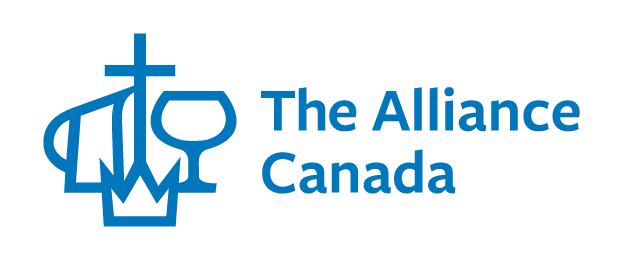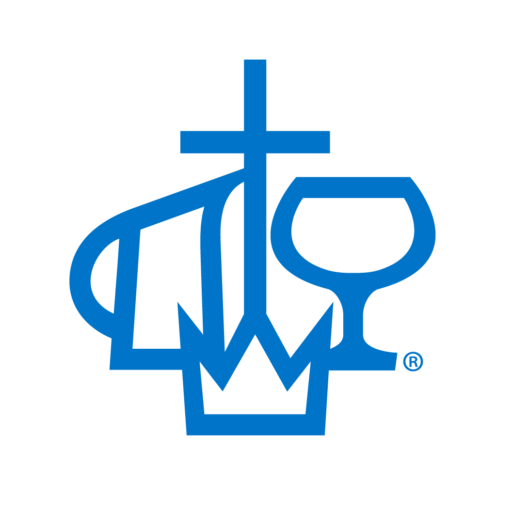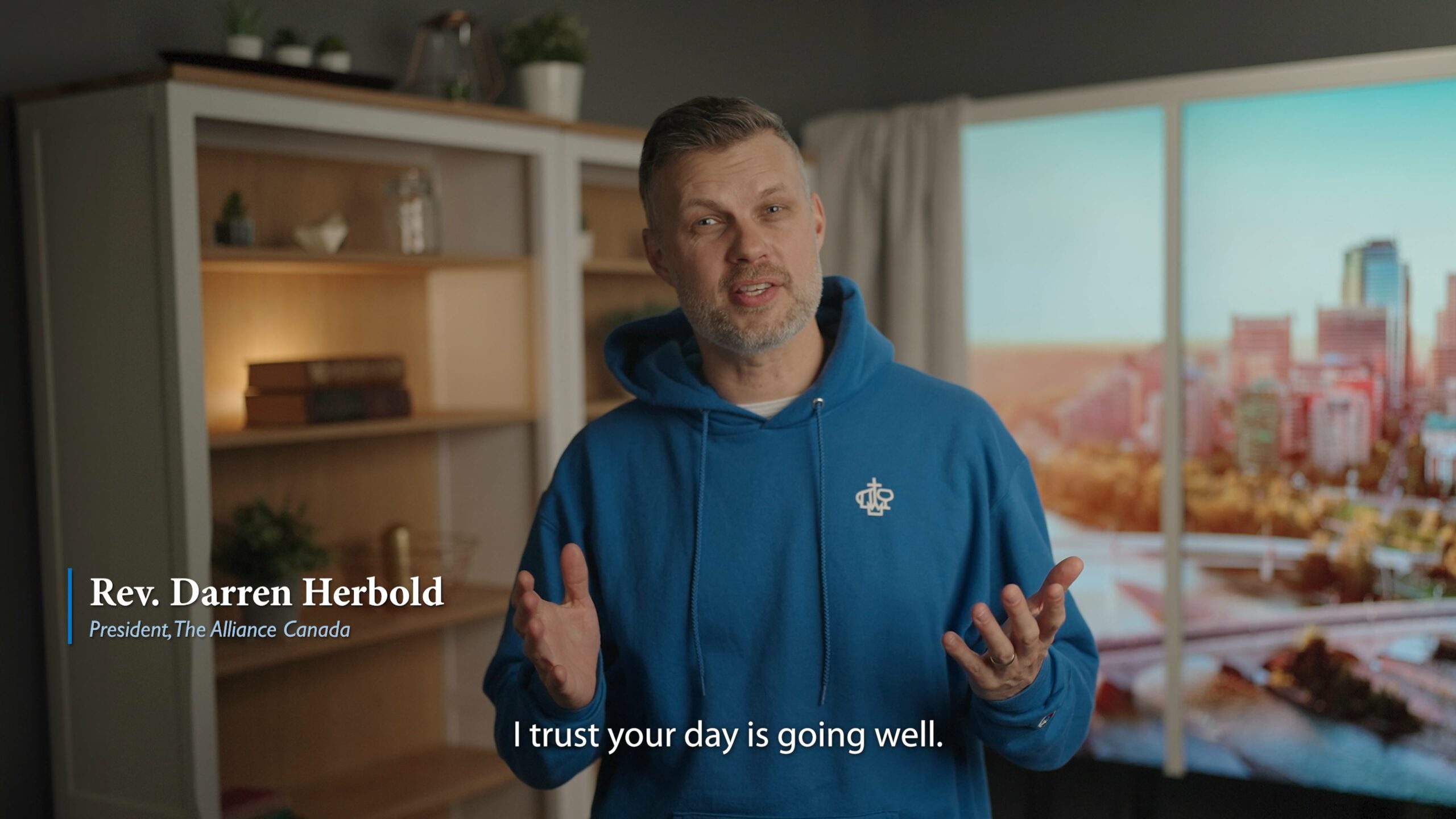One of our daughters returned from a full day of grade 7 studies at our local public school; having walked home with her brother, she flopped onto the couch and, as per usual, began to unpack her day with John and me. The day’s drama included who had made the cuts for the girls’ volleyball team. The story unfolded, revealing two of her friends, twins, got some challenging news. One twin made the team, and the other did not. I commented, “That must have been tough for all the girls. How did you handle it?” She sincerely but rather casually said, “Oh Mom, I just member cared her.”
This story still makes us chuckle as we recall the early days of trying to explain to our three kids (and our supporters!) what our new role entailed. Explaining is incredibly challenging given the confidential nature of much of our work. Simplifying it down to its most basic level, I explained to our kids our job was to listen well to international workers (IWs), listen to the Holy Spirit, and respond accordingly. Our twelve-year-old took this at face value and transferred it to her own context. In sharing her story, she reminded me we all live in a web of care and respond to the needs and responsibilities involved in our caring community. We all are called to listen and love well and respond as the Spirit invites us.
Structure of Care
Judy Wiebe has outlined well for us how The Alliance Canada first developed its Member Care structure and how it was expanded and strengthened over the next few years. Much of those structural pieces continue to inform how we “do” Member Care today. In the book Doing Member Care Well: Perspectives and Practices from Around the World, author Kelly O’Donnell outlines five types of care needed for the overseas worker. I love the visual this author uses, the image of a bullseye. At the centre of the bullseye, we have Master Care. This speaks to the foundational and formational aspect of identity in Christ and receiving God’s love as the core of our identity and care. From there, it flows outward, moving from Self Care to Mutual Care to Sender Care, and finally to Specialist Care. I will give a synopsis of what each of these types of care looks like within our organization.
Master Care
It cannot be emphasized enough how the core of all we do begins with and flows from our identity in, and relationship with, the Triune God. Our Competencies Rubric, explained in chapter four by Harvey Matchullis, captures well the concept of our value of Presence and what that looks like when lived out. The more invested we are in our relationship with God, the natural outcome is increased responsiveness to the lead of His Spirit in our ministry, but equally in our personal lives. God cares deeply about the well-being of His children and longs to guide them into wholeness in every aspect of their day-to-day lives. While Master Care seems to be the centre of the bullseye, so to speak, it actually encompasses all of our care structure as we depend entirely on Him to lead and guide an individual’s or family’s care through health and also a crisis.
Self-Care
Ownership of one’s care is a vital ingredient to a strong web of care. A central part of good self-care is self-awareness. Through the Grip-Birkman assessment tool, we seek to help individual IWs know who they are, how they are wired and gifted, and what they need to thrive in daily life while also weathering a crisis resiliently. Some IWs choose to use additional tools like the Myers-Briggs or the Enneagram to help them explore who God has made them to be. I love this passage, Galatians 6:4-5 (MSG) 1 “Make a careful exploration of who you are and the work you have been given, and then sink yourself into that. Don’t be impressed with yourself. Don’t compare yourself with others. Each of you must take responsibility for doing the creative best you can with your own life.”
Once individuals know who they are in Christ and begin unpacking who they are, considering how He has created them to uniquely reflect Him, they are better equipped to engage in self-care. For our workers, this involves developing a Wellness Plan 2 to both acknowledge how they are receiving God’s love and how they will then love God with their heart (emotional health), soul (spiritual health), mind (intellectual health), and strength (physical and financial health). In turn, they love their neighbours as themselves. The Wellness Plan is to be updated at least once a year and shared with a trusted mentor or accountability partner. IWs may also choose to share with their direct report during their Yearly Review Evaluation.
Mutual Care
This involves body life. Mutual caregivers would include teammates, peers (other cross-cultural workers, local co-workers, and friends), accountability partners (a requirement for each Alliance global ministries worker), mentors, and family members. Building on the love of God and then an awareness of who we are in Him, we are well-equipped to receive both the love, care, and growth-related input, of those in community with us. Some examples of mutual care would include being housed by another family when arriving on the field, celebrating holidays and birthdays with “field family,” regular accountability connects with a trusted friend who speaks truth into one’s life, and engagement in a faith community. When these various relationships are invested in and nurtured, the IW will have a web of support when facing a crisis or struggle. Examples of this would be caring for the kids of a pregnant mom now on bedrest, paying attention to the verbal breadcrumbs of a single co-worker who is struggling with loneliness and finding tangible ways to listen well first and then come alongside to connect them into community in meaningful ways, or simply being honest and vulnerable about one’s own struggles to make it easier for others to share and seek help. The core of mutual care is not one person who has it all together taking care of someone in a season of struggle. It is about responding to the Spirit’s invitation and bringing Him glory, not ourselves. Being vulnerable and honest in our struggles and in the Spirit-won victories in our lives are great community builders and make even more space for God to be glorified in our mutual care.
Sender Care
I am often asked how our organization oversees so many workers with only two Member Care Developers. The answer is simple, really. While John and I serve as point people and resource people for Member Care, as a global team, we have a common philosophy―member care is everyone’s responsibility. This is especially true for those in shepherding leadership roles within our organization; team leaders, team developers, and regional developers all have much more interaction in the day-to-day operations of our work. They are likely the first to notice a struggle or recognize something is not as it should be for those who are single, married, or within their families. These leaders understand the unique stressors associated with specific geographic locations and know intricate team dynamics. All are expected to continue to hone their reflective listening and question-asking skills. Without their vital, figurative fingers on the pulse of our global team, my role as Member Care Developer would be incredibly more complicated and capacity-depleting. It was never meant to be a one- or two-person job. Additionally, the role of our overseeing leadership like the vice president of Global Ministries (Venture) and the president of The Alliance Canada are vital advocates for care. Because Member Care is championed at every level and not just an afterthought, it continues to be an integral part of our operational standard.
A second vital aspect of sender care is our sending churches. Each IW has a sending church and sometimes a network of intentional churches that provide care and encouragement. The Global Ministries’ (GM) role in an IW’s life is organizational and is limited to some extent by the span of their employment with us. However, the sending church’s relationship is meant to be more enduring, beginning before they are sent and ongoing through and beyond their terms overseas. It is organic with what we see taught in the New Testament. The churches are the senders; GM simply facilitates and oversees that sending. We see a thriving global workforce when those two entities work well together.
For our organization, there is one more key entity. All Alliance churches belong to a specific geographic district. Those districts are the ones who license workers (ensuring they are theologically and ministerially fit to serve) and provide various care pieces for all their licensed workers, including those who serve internationally. Every district office worker has a part to play in nurturing IWs, but it is the key role of the district mobilizers and district superintendents. Working together, we see a beautiful example of Ecclesiastes 4:12, “a cord of three strands is not quickly broken.”
Specialist Care
Resource professionals are a vital part of care for our IW team, especially when we need to provide responsive/restorative care. These caregivers include medical and psychological/counselling professionals, spiritual directors, life coaches (especially for parenting and third culture kid care), educational specialists, and more. In most cases, these are paid professionals, but we also have a handful of folks who use their skills and professional abilities to serve IWs at no cost.
The job of the Member Care Developer is to connect IWs for care when needed and continually build up a network of caregivers willing to serve in this way. So many things can be easily taken for granted in North America, such as access to educational testing, physiotherapy, speech therapy, and counselling services, which are incredibly hard to access in most of our serving locations. Equipped with remote connections, it is incredible how much specialist care and intervention can occur today. We rely heavily on this specialist care, especially in emergency medical situations when every minute counts. Sovereignly overseen and orchestrated by the loving hand of God, we see miracle after miracle occur in the provision of care for global workers. He has been very gracious, and His team of servant specialists very faithful in their outpouring of care.
At any given time in an IWs life, all these factors of care are at play in different ways. With any one area missing, an IW/family suffers. Like Paul’s illustration of the body in I Corinthians 12, we all have a significant role to play in the care of global workers, and thus take part in sharing the love of Christ with a dying world.
Preventative Versus Responsive Care
It is crucial to acknowledge the tension any Member Care worker faces as they live out the role God has given them. This tension is between preventative and responsive care, also stated as proactive versus reactive care.
Preventative care entails all the aspects overseen by helping an IW maintain a healthy and resilient life. This would include overseeing administrative details such as finances, insurance, child safety protocols, cost of living evaluations, medical and psychosocial screenings, resource library development and maintenance, to name just a few. To liken it to family life, this is buying the groceries, getting dinner on the table, and paying the bills. It must be done. It is not always exciting, but it is stabilizing and vital by its very rhythmic nature.
Responsive care encompasses any issue arising outside of the day-to-day norm. Sometimes responsive care means dealing with relatively mundane items, like intervening when insurance coverage is not as it should be, or helping an IW track down where they can do a follow-up lab test when they do not have access in their location. However, sometimes responsive care takes a more serious turn. This would include medical evacuations, the death of a co-worker, or even IW. In addition, it includes mental health crises, questioning of calling reflections, and even moral failures, which require a disciplinary response from the IWs district.
From broken bones to broken hearts, responsive care can be overwhelming if the caregiver bears the weight of the care on his or herself. Ultimately, the care provider must practice what they preach, relying on Master Care, Self-Care, and Mutual Care to help them remain resilient themselves through pandemics, struggling kids, cancer diagnoses, team conflicts, mental health breakdowns, and even the loss of a worker. In all of these, grief must be attended to, both for the caregiver and the one in crisis. If not, the accumulated grief can take a more profound toll than the crises themselves.
The tension between the two comes when either one overshadows the other. Naturally, responsive care, by its very nature, demands a response. However, using the family home analogy again, the caregiver must also keep in mind that things will be much more complicated if the electric bill is not paid! Maintaining a balance between preventive and responsive care can only be done successfully― meaning without damage to the caregivers themselves―when done in balance and by living out the conviction at the core of my Member Care Ethos: “God is the ultimate Caregiver, who knows my limitations. My capacity is limited; His is limitless. My understanding and discernment are bound by my humanity and time; His wisdom is sovereign and eternal. Therefore, I can trust Him to fill the gaps of my own limitations, always above and beyond what I could have accomplished in my own strength.”
With that in mind, let us look at some of the general ways that care flows to IWs through their time with Global Ministries.
Preventative Flow of Care: Pre-Appointment
Candidate care is overseen by both the candidate developer and their team, which includes Member Care developers. The desire is to move the candidates towards global assignment by the lead team and/or board of directors, which is required for employment. This would encompass many things, but specifically speaking from the care perspective, the following are valuable.
Medical and Psychological Screening
Once an inquirer moves to the candidate stage (which means they have passed their licensing with the district and have a calling to a specific ministry in a specific geographic location), we begin the physical and psychosocial screening associated with the particular location. A third-party provider, International Health Management (IHM) based in Toronto, Ontario, conducts these assessments. They have faithfully served our global team for decades. The screenings conducted are not a part of the IWs employment record. IHM also makes recommendations, including vaccinations required for entry by other countries.
While every cross-cultural location has its unique hardships and special benefits, some places would be considered more difficult than others according to standards used by the governments of Canada or the USA. This would include access to medical care/medications, ongoing geopolitical conflict, educational opportunities, difficulties around travel, cultural limitations relating to gender, or lawful limitations around religious expression.
Through the psychosocial screening battery of assessments, the candidate is helped in identifying areas of resilience and weakness, taking into consideration some of the unique difficulties they have faced, which can help them be more resilient moving forward. If married, the assessments also seek to help identify marital resiliency and areas of vulnerability for the couple to tend. The medical screening likewise helps us determine if an individual can maintain their standard of health in their future location. Some underlying conditions cannot be supported in specific areas, which should be considered by both the candidate and the candidate development team. However, in most cases, a suitable placement can be managed successfully.
Pre-Departure Orientation
Pre-departure orientation (PDO) usually occurs in the late Spring and involves those planning to depart for their assignment sometime in the coming year. It can occur before, during, or after the screening process. PDO usually runs for about seven days and involves several facilitators. Topics are guided by the desired competencies (which in turn were developed by our values). While this is an onboarding in some ways, much of the actual nuts and bolts around onboarding occur one-on-one with members of our GM staff. This onboarding is tailored to help the individuals and families adapt to the paradigm shift of living cross-culturally. This will be their first vocational ministry role for many of our candidates, which also requires a change in basic assumptions when thinking and in life rhythms. Topics included are cultural learning and language acquisition, transition and grief, TCK care, telling your story, building a support team, and the interplay between self-awareness and spiritual formation.
Preventative Flow of Care: Post-Appointment
Once a candidate is approved and appointed by the board of directors, they begin onboarding in several areas, overseen by GM staff. This includes training in financial reporting and assistance with travel planning and visas, among other things. More topics included in this season of time before departure are outlined below.
Medical Insurance
Global Ministries maintains medical insurance coverage for its contracted employees serving overseas, beginning one month before their overseas assignment departure. We work hard to ensure broad coverage and reimbursement as straightforward as possible.
Life Insurance
All active IWs have a life insurance policy. Retired workers also receive a policy reflective of their age and inactive status.
Alliance Retiral Fund (ARF)
All IWs are considered Alliance employees, and contributions to ARF are made. The IW can increase this with personal contributions if they desire. Along with this benefit, financial planners who manage this fund are available at no cost to assist IWs with financial planning needs as requested.
Plan to Protect
The physical and emotional safety of children, both those of our employees and those we serve, is of vital importance to GM and The Alliance Canada. Therefore, all employees complete specific training at the time of their employment and are expected to renew this every four to five years. In addition, as part of our employee contract, all IWs are expected to review the Child Safety and Protection Policy annually, as per our handbook.
Wellness Plan
Training materials are provided to candidates at PDO or earlier. The appointee is encouraged to begin thinking about ways to best maintain wellness and resilience in their lives. This will require adaptation based on their future overseas assignment. The new IWs will be asked at the time of their yearly evaluation if they have updated their wellness plan, which should give them a few months to consider how to maintain wellness in their new context. This plan is meant to be a living document and can be adapted as needed throughout the year, with accountability from a person of the IW’s choosing.
International Health Management
When an IW is one month from departure, we register them with International Health Management. At any time, they can reach out to the doctors, nurses, and other professionals there for confidential and protected assistance while in their overseas location. The health history gathered during the screening phase is invaluable to IHM as they seek to serve families experiencing medical or mental health crises far from their passport country.
Preventative Flow of Care: On the Field
IWs have several resources at their disposal to help them thrive in their overseas assignment.
Curated Resources
An organization is responsible for curating helpful resources for those it shepherds. By using Office 365, we not only have an organizational directory, which significantly increases peer-to-peer communication and support, we also have several resources on SharePoint. One of these is the Member Care Resource Library which includes resources ranging from TCK care, community life, spiritual formation, a list of counsellors, and self-assessment tools. Over twenty-five files contain hundreds of documents, article and book recommendations, and links.
Shepherding Care
As previously mentioned, the shepherding care of regional directors, team developers, and team leaders happens in various ways, but it is worth mentioning again what a vital part of our Member Care plan it is.
Focus on Cultural Competency and Language Acquisition
We have an organizational value to enter new contexts as learners, thus we put a high emphasis on learning language and gaining cultural competency before engaging in full-time ministry. This ranges from one to two years, depending on context and language difficulty. Most IWs continue learning deeper layers of language alongside their ministry engagement after that.
Sending Church Visits and Ministry Engagement
This looks different from team to team. However, having a small group from the sending church determine what would be helpful to the team and how they might serve for a week or two can often help to educate the sending church on how to better partner with their IWs in prayer, encouragement, and future ministry. The whole team needs to be engaged, and the team leader a part of any planning or trip discussion. A well-informed, intentional visit by a sending church can revitalize the whole team. A trip that does not involve the team leader or consider the context and current team needs can put undue stress and pressure on a team. Good communication, praying together, and discerning listening contribute to a successful short-term trip for both those visiting and those receiving.
Education Plans and TCK Care
Each family submits an annual education plan for each child. They are guided by their leaders and, when needed, Member Care to ensure each child meets Canadian standards, assessing any gaps that need to be addressed. Additionally, GM has developed a living document about TCKs stage by stage, which includes tips and insights to help parents shepherd their children to receive God’s love and love Him with heart, soul, mind, and strength.
Preventative Flow of Care: Return to Canada
From the Canadian perspective, it must seem like IWs are excited to return “home.” And while in most cases this is somewhat, if not largely accurate, there are often mixed feelings about this transition. Here are some facts to consider:
- Returning for a one-year home assignment means packing up and storing possessions in their assignment country. Whether for a family or for a single person, this is no small task.
- It is essential for any ministry responsibilities and relational connections (for each family member) to be tended to well.
- Plans must be made for living temporarily in Canada, usually for one year. A rental needs to be obtained and furniture and other household needs. Usually, the family also needs assistance locating and paying for a vehicle.
- Children are anticipating transitioning to a new school and sometimes school in a new language – English! Therefore, this is a wonderful opportunity to assess if the overseas school meets educational needs. Still, parents need to pay attention to the child’s emotional needs as well.
- Climate and cultural shifts are also experienced by each family member. Therefore, re-learning cultural norms and getting up to date with what is new in Canada and in the local churches can provide a steep learning curve.
Variety of Care Programs
Home Ministries
Most IWs return in the summer, so we run a retreat in August. This Home Ministries Retreat (HMR) helps parents and children pay attention to the gains and losses surrounding this transition. Peer-to-peer encouragement, prayer, and learning are among the greatest assets of this time, alongside several gifted resource people. Then, beginning in September, we unpack the nuts and bolts of home ministries through a series of monthly connections. We do this remotely, with consistent small group times and various topics and facilitators engaged in helping IWs live out their work for this unique year.
Transition Materials
While everyone experiences transitions of sorts, IWs face a uniquely high amount, and paying attention to the emotional and spiritual aspects surrounding this facet of IW life is vital to long-term resilience. We talk a great deal about paying attention to the gains and losses of transition. We offer several models to reflect on, book and article suggestions, and resources as needed to help people navigate through seasons of change.
Psychosocial Debriefing
All IWs meet with a psychologist for a debriefing once every four to five years at the time of their home assignment.
Medical Clearance Screening
All IWs repeat basic medical assessments through IHM for each family member. Preventative medical care and screening are minimal to nonexistent in many contexts. These screenings often reveal small things requiring attention and less frequently serious health concerns that need to be addressed. At this time, vaccinations are also updated as needed and recommended by IHM and in coordination with the individual’s family doctor. Medical clearance screening benefits the organization by hopefully avoiding an expensive and intense future medical evacuation. Still, more importantly, the goal is to spare individuals and families from the disruption and possibly severe implications coming from an unknown medical issue.
Plan-to-Protect and Child Safety
This training is renewed during the home assignment. It is also important for the IW to follow through on any specific requirements their district might have in this area.
Administrative Details
The GM staff have developed many resources and are willing to assist an IW in following through on any specific administrative details unique to their home assignment.
Self-Care
An IW has a personal responsibility to see to it they are in accordance with requirements around things like tax reporting, provincial residency, and provincial insurance. We can try to answer questions or find resource people willing to assist with questions, but this is a personal responsibility. We also encourage IWs to consider renewing their will, power of attorney, or guardianships (if children are involved) at this time. This is an excellent time to re-evaluate financial planning, future educational needs, and needs of family members (especially aging parents) and formulate plans to engage in these new shifts in their family dynamics.
Unique Seasons of Transition
Special provisions are available when a home assignment coincides with the launch of a young adult child or the conclusion or retirement from Global Ministries.
We offer a re-entry training week run by a third-party resource team for graduating students launching into independence. We also provide debriefing and follow-up counselling to assist young adults with their transition. Each young adult who has returned to Canada is also given a return round trip to visit their parent’s overseas location prior to age twenty-two. We also offer scholarship funds that can be accessed by our TCKs, a fund that can be supported by extended family members or local churches.
Concluding with GM ideally involves three concepts: reflection, planning, and celebration. For retiring and concluding adults, we attempt to give them good places to process and debrief not only their last term but a career or season of serving overseas. This allows them to reflect with a wise and discerning listener. We also provide materials to help them process this transition. The more years we serve with GM, the more danger we face finding our identity in the role. Paying attention to the new invitation of the Spirit for the season ahead is part of this reflection time.
Every retirement and conclusion has its own specific nuances. After listening well to the individual/family, we try to come alongside for resourcing and benefits. Preparing for retirement from GM after fifteen or more years doesn’t begin at age fifty, or even fifty-five. Instead, we encourage all IWs to start considering their retiral planning even as they begin serving with GM. Associated with our ARF, every IW has access to a financial planner willing to guide them through their seasons of family life and investment, all the while keeping in mind the goal of retiral financial stability. Also, every qualifying retiring IW has a life insurance policy maintained by GM until their passing.
We want to celebrate the time served with GM, whether for a season or a career of service. This is usually done in the region at large group events and in their location of service with their team and community. Upon returning to Canada, their service is generally recognized by the district. For many retiring IWs, this season marks a high level of engagement within the district in mentoring, pulpit supply, and volunteer mobilization. Every qualifying retiring IW is also invited to the next available General Assembly to add an additional closure and community celebration event.
Restorative Flow of Care
This segment will contain fewer details because, by nature, the answer must be specifically tailored to the situation or crisis needing a response.
Health Emergencies
A health emergency for anyone overseas can be confusing or scary, depending on the circumstances. We try to mitigate these factors by encouraging the IW to connect immediately with IHM and Member Care for resourcing. Working with our insurance team, we seek to find the best care at the closest location. When needed, IHM determines if evacuation to Canada is necessary. Occasionally health emergencies require temporary or permanent repatriation back to Canada.
Psychosocial Needs
As mentioned before, the high number of stressors and griefs associated with cross-cultural life, in addition to occasional traumatic events, can cause the need for psychological therapeutic care. We are committed to assisting IWs access faith-based and professionally accredited care which is a good fit for them. Sometimes this means accessing overseas-based providers, and sometimes providers from their home province. When needed, Member Care connects with the individual to assess if the provider meets their needs and help shift care if required.
Spiritual Needs
Sometimes, an IW would benefit from spiritual direction, soul care, pastoral care after a recent trauma, or challenging work experience. When welcomed by the individual, and sometimes in cooperation with their sending church, we seek to connect them with spiritual guidance. Member Care, regional developers, and teammates can also provide this type of care in some situations.
Discipline-Related Care
International workers are human. And sometimes, they make mistakes that have a broad impact on themselves, their families, their supporters, and their ministries. This may be related to a moral failure of some sort. It may be related to a breach in our Call to Excellence or Code of Conduct.
Whatever the reason for discipline, the deep desire of all who come alongside for care is for holistic restoration to be attained for the good of the individual/ family and the glory of God. A discipline process is overseen by the individual’s district superintendent, in coordination with GM and the sending church, and in keeping within the guidelines of The Alliance Canada’s Manual. Member Care’s responsibility is to provide restorative opportunities to engage with counseling, spiritual direction, soul care, accountability, and help guide the individual(s) in reporting back to the district superintendent. The ultimate goal in any discipline-related process is to see individuals and families more closely walking in relationship with Christ and His Body. Ultimately, this can only be achieved through both the work of the Holy Spirit and response to this work.
Conclusion
This is an exhaustive list of topics, yet it really just skims the surface of everything involved in helping workers not only maintain but even more so thrive emotionally, spiritually, mentally, and physically in their overseas context. It is more than one person, couple, or even team can maintain. Thankfully, the work is the Lord’s, and He not only oversees it but also brings His will about even through our limitations and capacities because of His deep love for His people and for a waiting, unbelieving world.
For Further Reading
Doing Member Care Well: Perspectives and Practices from Around the World by Kelly S. O’Donnell
This book explores how member care is being practiced around the world to equip sending organizations as they intentionally support their mission/aid personnel. The information provided includes personal accounts, guidelines, case studies, worksheets, and practical advice from all over the globe.
- The Message (MSG). Copyright © 1993, 2002, 2018 by Eugene H. Peterson
- Outlined by Judy Wiebe in Chapter 8
Share:
Find more posts about:
The Alliance Canada
Support the mission
The Global Advance Fund (GAF) is a pooled fund that supports our workers in Canada and around the world to share the Gospel with people who haven't yet heard the name of Jesus. Your continued generosity equips and sustains our workers and their ministry.








